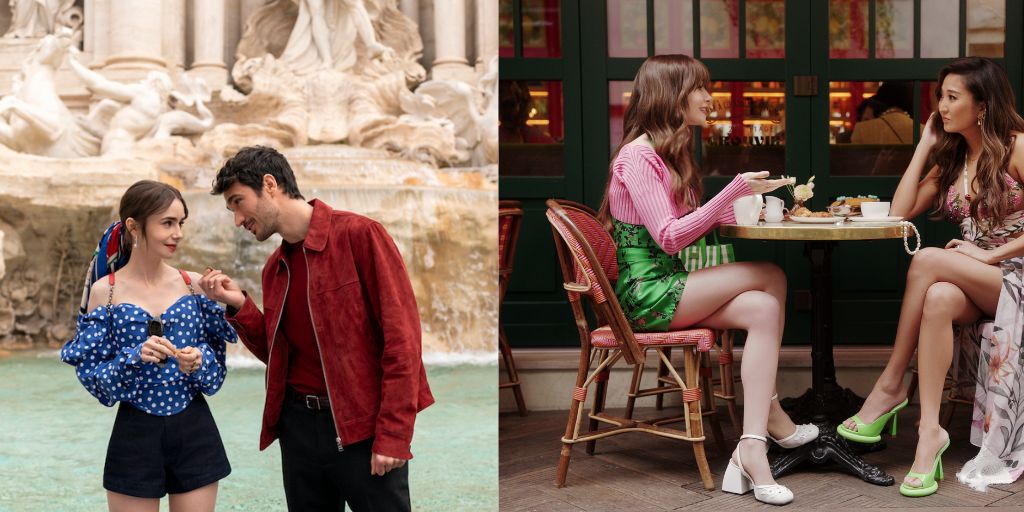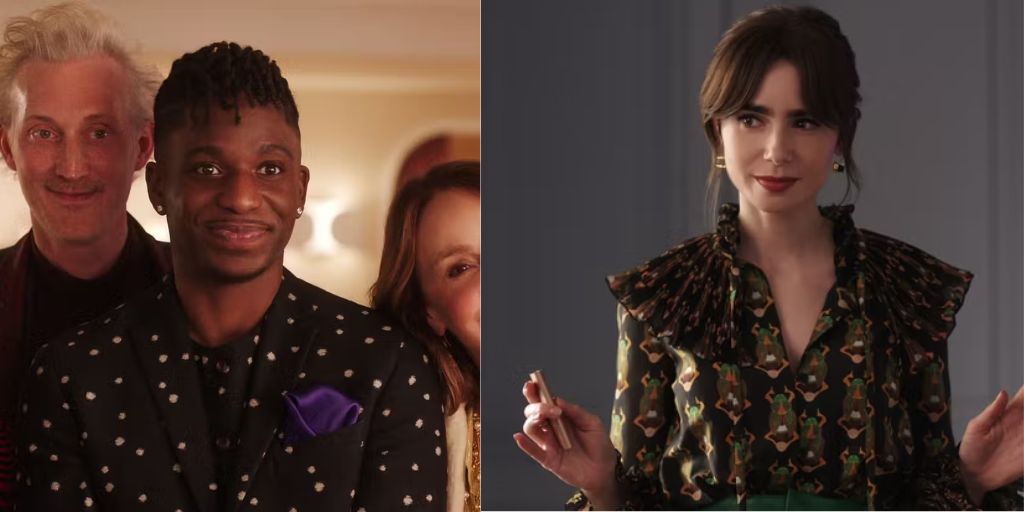Emily in Paris is a vibrant show that captures the imagination of many viewers. Its bold fashion choices, colorful settings, and dramatic storylines offer a delightful escape into a stylized version of Paris.
The main character, Emily, has become a focal point of this escapism, representing a unique blend of American culture and the enchanting allure of the City of Love. However, a question lingers in the minds of fans: Why hasn’t Emily learned more French after spending four seasons in Paris?
From the beginning, Emily shows her eagerness to embrace her new life in Paris. She starts the series by attending French classes, demonstrating her intention to learn the language. The show initially highlights her struggles with French, making a clear effort to address this aspect of her character.
Yet, despite these early efforts, Emily’s French skills seem to stagnate over time. By the end of the second season, she is portrayed as having moved past beginner classes, but her ability to communicate in French does not appear to improve significantly.
It is important to consider how language learning typically occurs in real life. Many language learners find that immersion in the culture is one of the most effective ways to acquire new skills.
Living in a place where the language is spoken, engaging with native speakers, and moving daily life all contribute to a deeper understanding of the language.

In Emily’s case, she is fully immersed in Parisian culture; she works in a marketing firm, interacts with locals, and wander the city. Given this context, it raises eyebrows that she does not make more progress in her French language abilities.
One possible explanation for Emily’s lack of improvement could be the special treatment she receives from those around her.
Throughout the series, it is evident that her colleagues and acquaintances often switch to English to accommodate her. While this may be a kind gesture, it also hinders her ability to learn and practice the language.
The constant use of English creates a safety net that prevents Emily from fully engaging with the French language.
In a realistic scenario, it would be more typical for her coworkers to encourage her to speak French, especially given that they work in a French marketing environment.
Emily’s character is built on the foundation of ambition and a desire to please others. She is introduced as a go-getter who wants to succeed in her new role, and her personality often leads her into various dramatic situations.
Yet, it seems inconsistent that someone with her drive would neglect to learn a vital skill like the local language. For a character who thrives on connecting with people and moving social dynamics, her failure to prioritize language learning feels out of character.
In Season 3, there is a moment that further emphasizes Emily’s shortcomings in the language department. While serving as a waitress at Gabriel’s restaurant, she misinterprets the French word “champignon” (mushroom) for “champagne.”
This mix-up results in a serious allergic reaction for a customer. The gravity of this situation raises questions about why a life-threatening event does not motivate Emily to take her language learning more seriously. Such an incident could serve as a wake-up call, prompting her to recognize the importance of understanding the language and culture surrounding her.
As the series progresses, the comedic element of Emily’s language struggles begins to feel repetitive. Initially, viewers found it endearing and relatable to watch her move cultural differences and language barriers. However, the ongoing jokes about her lack of French knowledge gradually lose their charm.
The humor surrounding her language skills starts to feel like a crutch for the writers, recycling the same punchlines without adding depth to her character. While comedy and language barriers can coexist in storytelling, it seems contradictory for a character like Emily—who is ambitious and sociable—to remain so limited in her language abilities.
Another aspect that complicates Emily’s journey is her role as a marketing professional. Marketing relies heavily on effective communication, and one would expect someone in her position to understand the language of their target audience. Emily’s colleagues, who are fluent in French, often translate for her, highlighting her dependence on others.

This dynamic creates an awkward scenario where she is celebrated as a marketing genius, yet she struggles to communicate without assistance. It raises the question of whether her professional accomplishments are truly earned when her language skills remain so underdeveloped.
In Season 4, the show finally addresses the inconsistency surrounding Emily’s language skills. Gabriel, who is a significant character in her life, becomes increasingly frustrated with her inability to learn French. He confronts her directly, expressing his feelings about her lack of effort in embracing the culture.
This moment stands out as a turning point for both the narrative and Emily’s character development. It is refreshing to see her face real consequences for her shortcomings, as it adds a layer of complexity to her journey.
The introduction of a new character, Genevieve, serves to further highlight Emily’s struggles with the language. Genevieve is also from New York, yet she speaks French fluently and get along with the Parisian with ease. The contrast between the two characters emphasizes Emily’s lack of progress over the seasons.
While viewers may not expect Emily to become fluent overnight, Genevieve’s presence serves as a reminder of the effort and dedication required to master a new language.
As the series unfolds, the show does not shy away from its own narrative shortcomings. While it thrives on fantasy and exaggeration, acknowledging Emily’s language struggles is an essential aspect of her character arc.
In the closing scenes of Season 4, Emily finally attempts to give Gabriel a heartfelt congratulatory message in French. This moment feels like a symbolic acknowledgment of her need to take her language learning seriously. While it may seem like a small gesture, it represents a step forward in her journey.
The show’s ability to take accountability for this oversight is gratifying. It signals to viewers that Emily is beginning to recognize the importance of understanding the language and culture that surround her
As the series prepares to travel new locations, such as Rome, there is hope that Emily’s journey will continue to grow. Perhaps she will not only embrace the beauty of the Italian language but also demonstrate a newfound commitment to language learning.

The question of why Emily has not learned more French after four seasons continues to be a talking point among fans. It serves as a reminder that language learning is a complex process that involves more than just taking classes.
Immersion, practice, and a willingness to engage with the local culture are key components. For Emily, her journey reflects the challenges that many people face when trying to adapt to a new environment.
While Emily in Paris offers a fun and fantastical portrayal of life in Paris, it also invites viewers to reflect on the realities of language acquisition.
Emily’s journey serves as both a source of humor and frustration, highlighting the intricacies of a new culture. As the series moves forward, it will be interesting to see how Emily’s character develops and whether she fully embraces the language that is an integral part of her Parisian life.
Emily’s struggles with the French language illustrate both her character’s complexity and the show’s ability to engage with real-world issues.
The interplay between humor and frustration adds depth to her narrative, making her journey relatable to viewers who have faced similar challenges. As she confronts her language barriers, there is potential for growth, both as a character and as a person finding a vibrant new world.
Moving forward, fans of Emily in Paris will likely remain invested in her journey. The hope is that the series will continue to blend the fantasy of Parisian life with the realities of language learning, allowing Emily to become a more well-rounded character in her adventures.
Emily’s character embodies the struggles many face when entering a new culture—balancing the desire to fit in while maintaining one’s identity. This duality can resonate with anyone who has experienced the challenges of relocating or adapting to a different environment.
As the series progresses, viewers may hope to see not only Emily’s language skills improve but also her understanding of the cultural nuances that define her new life.
Her journey of self-discovery could become a powerful narrative about resilience, adaptability, and the beauty of embracing new experiences. Fans will be eagerly watching to see how Emily grows, and whether she can truly become a part of the Paris she admires.




